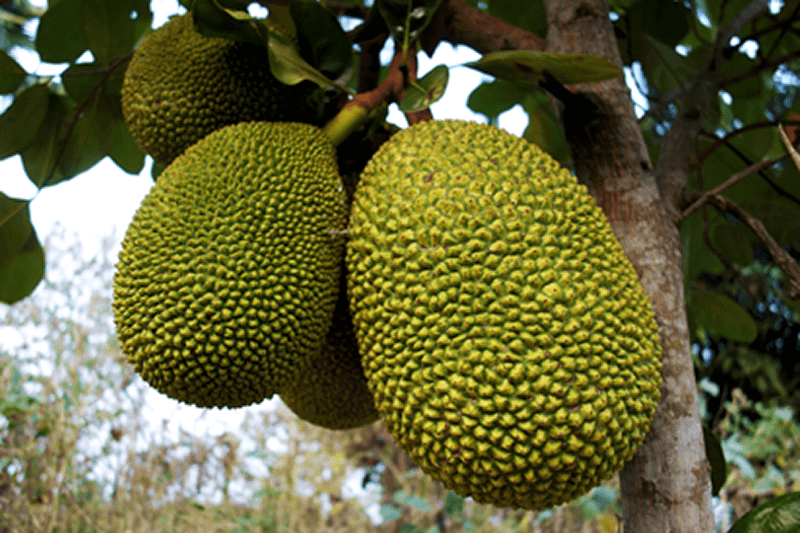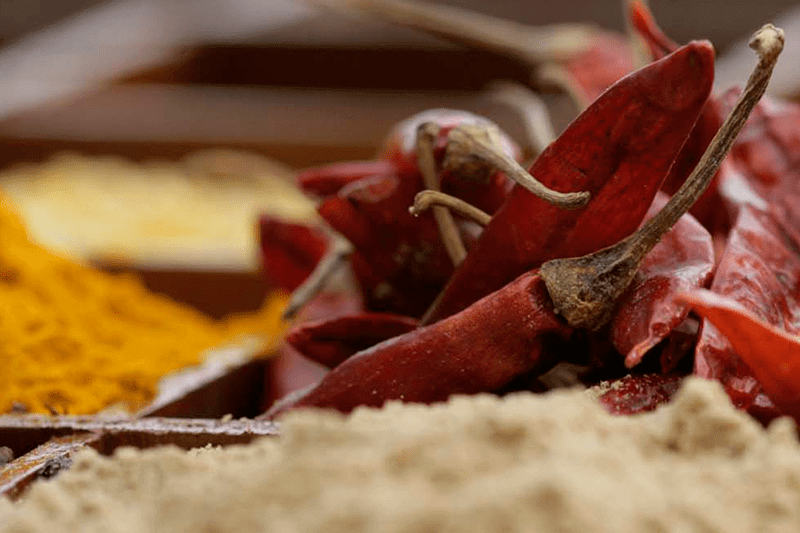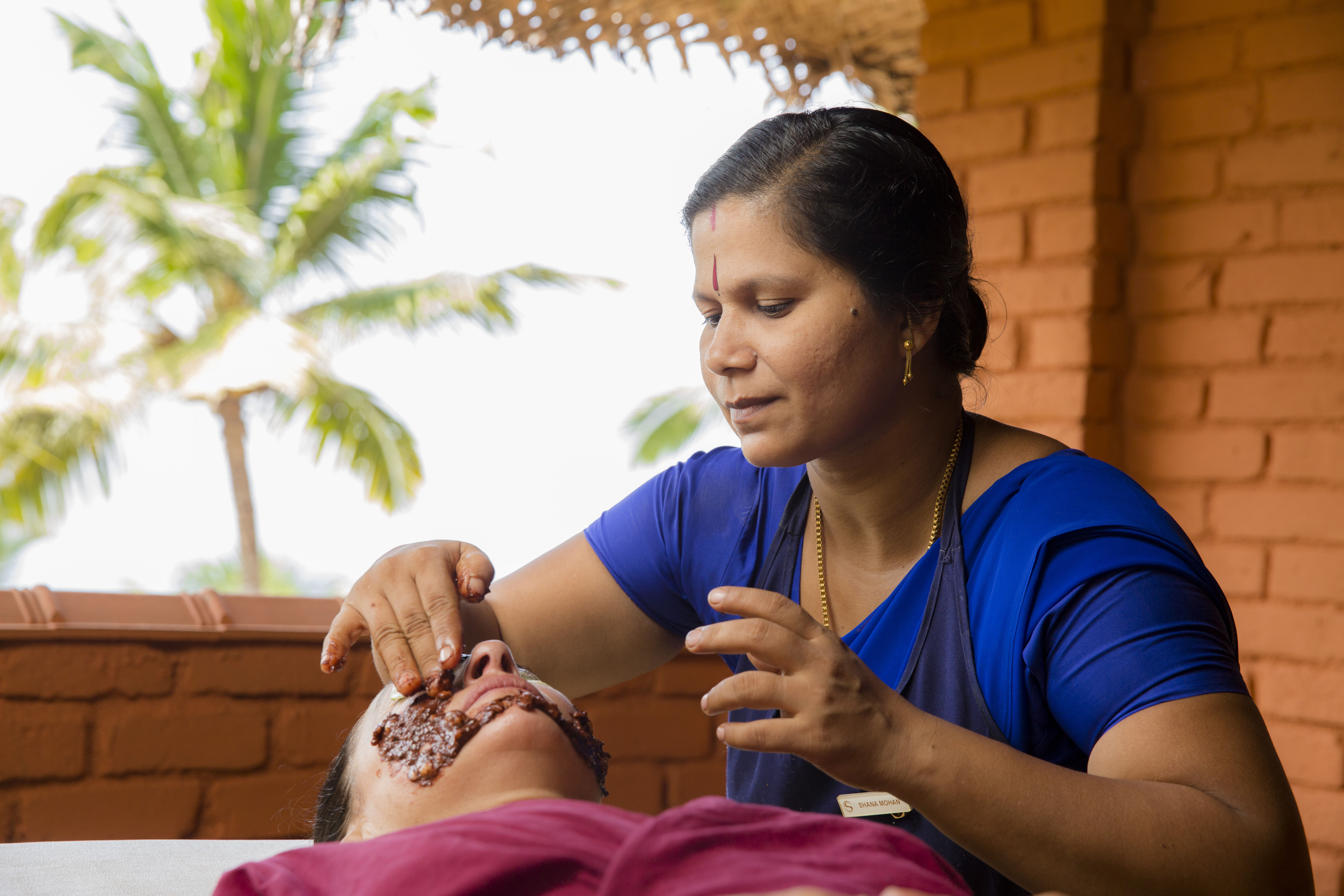
The enormous jackfruit looks far too heavy for its short stalk and can literally be described as a ‘fruit bomb’: The largest tree-borne fruit can reach up to 100 cm in length, 50 cm in diameter and as much as 15 kg in weight.
Apart from its significant size a crucial role for our health – also when it comes to Ayurveda.
Originated in the southwestern rain forests of India, the fruit is nowadays widely cultivated in tropical regions all over the world. Depending on the continental seasonality jackfruits are mature either from January to June or from September to December.
The unripe fruits continue to ripen after harvesting and obtain a rotten smell once they are overripe. Jackfruits are full of nourishing starch, which makes
them a good replacement for meat, as the unripe fruit can be cooked, steamed, fried or even broiled. Similar to chicken meat the pulp can be seasoned to taste and is therefore an ideal option for a vegetarian or vegan diet.
Another advantage of jackfruits is the high calcium content: It contributes to healthy bones and teeth, containing 27 mg of calcium in 100 g of fruit pulp. The seeds are rich in vitamin B, magnesium, iron and Sulphur and can be cooked and served instead of beans or rice. Roasted they taste similar to chestnuts.
The ripe fruit tastes like a mixture of pineapple and banana and can be served pure, as part of a fruit salad or processed to jam. Purees, sorbets and ice cream are also popular preparation styles.
The jackfruit is not only a culinary all-rounder but also has a healing effect in Ayurveda. It contains more than 20 acid esters and alkanols, which strengthen the immune system according to Ayurvedic teachings. Due to this our doctors prescribe jackfruit in appropriate indications.














 (1 votes, average: 4.00 out of 5)
(1 votes, average: 4.00 out of 5)
What do you think?